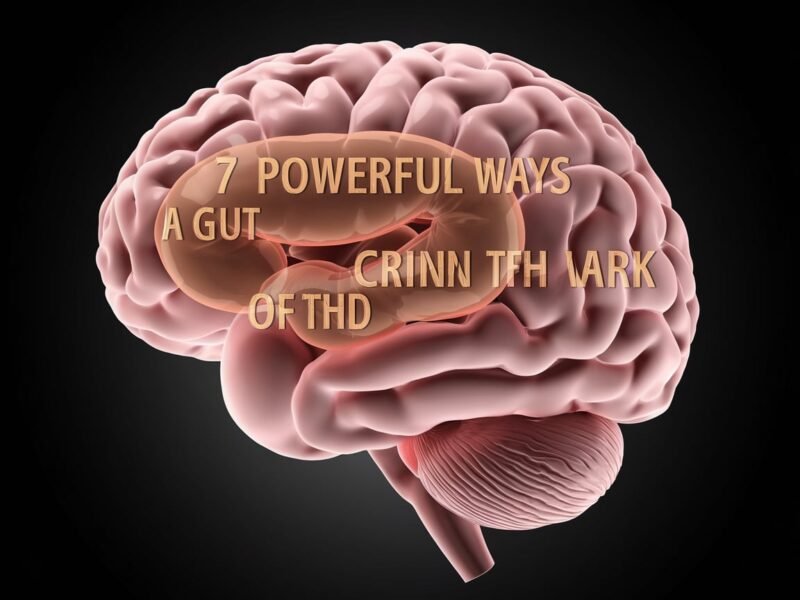In an increasingly fast-paced world, mental health has become a focal point of discussion and concern. Understanding stress, anxiety, and the importance of mindfulness can empower individuals to cultivate better mental well-being. This article explores effective stress management techniques, methods for relieving anxiety, and various mindfulness practices that can transform your daily life.
Understanding Mental Health
Mental health encompasses our emotional, psychological, and social well-being. It affects how we think, feel, and act, influencing our ability to handle stress, relate to others, and make choices. Prioritizing mental health is essential for overall wellness, as it can impact physical health and quality of life.
Common Mental Health Challenges
- Stress: A natural response to challenging situations that can become overwhelming when chronic.
- Anxiety: A feeling of worry or fear that can manifest in various forms, such as generalized anxiety disorder (GAD), panic attacks, and social anxiety.
- Depression: A mood disorder characterized by persistent feelings of sadness, hopelessness, and a lack of interest in activities.
Stress Management Techniques

1. Identify Stressors
Understanding what triggers your stress is the first step toward managing it effectively. Common stressors can include:
- Work-related pressures
- Financial difficulties
- Relationship challenges
- Health concerns
2. Time Management
Effective time management can reduce feelings of overwhelm. Consider these strategies:
- Prioritize Tasks: Use techniques like the Eisenhower Matrix to distinguish between urgent and important tasks.
- Set Realistic Goals: Break larger tasks into manageable steps to avoid feeling overwhelmed.
- Create a Schedule: Use planners or digital calendars to organize your time effectively.
3. Physical Activity
Exercise is a powerful stress reliever. It releases endorphins, improves mood, and enhances overall well-being. Aim for at least 30 minutes of moderate exercise most days, such as:
- Walking or jogging
- Cycling
- Dancing
- Yoga
4. Relaxation Techniques
Incorporating relaxation techniques into your routine can help reduce stress levels. Some effective methods include:
- Deep Breathing: Practice deep breathing exercises by inhaling deeply through your nose, holding for a few seconds, and exhaling slowly.
- Progressive Muscle Relaxation: Tense and relax each muscle group, starting from your toes and working up to your head.
- Visualization: Imagine a peaceful scene to help calm your mind.
5. Social Support
Connecting with friends, family, or support groups can alleviate stress. Talking about your feelings and experiences can provide emotional relief and help you gain perspective.
Anxiety Relief Strategies

1. Cognitive Behavioral Therapy (CBT)
CBT is a structured, goal-oriented therapy that helps individuals identify and change negative thought patterns and behaviors. It is highly effective for anxiety disorders.
2. Mindfulness Meditation
Mindfulness involves focusing on the present moment without judgment. Practicing mindfulness meditation can help reduce anxiety by promoting relaxation and acceptance. Here’s how to get started:
- Find a quiet space.
- Sit comfortably and close your eyes.
- Focus on your breath, noticing the sensation of inhaling and exhaling.
- If your mind wanders, gently bring your focus back to your breath.
3. Journaling
Writing about your thoughts and feelings can help process emotions and reduce anxiety. Consider these journaling techniques:
- Gratitude Journaling: Write down three things you are grateful for each day to shift your focus from negative to positive.
- Stream of Consciousness Writing: Allow your thoughts to flow freely onto the page without self-editing.
4. Limit Caffeine and Alcohol
Both caffeine and alcohol can exacerbate anxiety symptoms. Try to reduce consumption and observe how it impacts your anxiety levels.
5. Practice Self-Compassion
Being kind to yourself can alleviate anxiety. Recognize that everyone experiences anxiety and allow yourself to feel without judgment.
Mindfulness Practices
1. Mindful Breathing
Mindful breathing is a foundational practice that helps anchor you in the present. Spend a few minutes each day focusing solely on your breath.
2. Body Scan
A body scan involves mentally scanning your body for tension and releasing it. Here’s how to do it:
- Lie down comfortably and close your eyes.
- Bring awareness to your toes, noticing any tension.
- Gradually move your attention up through your body, relaxing each part as you go.
3. Mindful Eating
Mindful eating encourages you to focus on the experience of eating. To practice:
- Eat slowly and savor each bite.
- Pay attention to the flavors, textures, and aromas of your food.
- Avoid distractions like TV or smartphones during meals.
4. Nature Walks
Spending time in nature can enhance mindfulness and reduce stress. Aim to be present in your surroundings, observing the sights, sounds, and smells.
5. Guided Meditation
Using guided meditation apps or videos can help you explore various mindfulness techniques. These resources can provide structure and support in your practice.
Creating a Personal Mindfulness Routine
1. Start Small
Begin with just a few minutes of mindfulness practice each day. Gradually increase the duration as you become more comfortable.
2. Choose Your Techniques
Experiment with different mindfulness practices to find what resonates with you, whether it’s meditation, yoga, or mindful walking.
3. Set a Schedule
Incorporate mindfulness into your daily routine by setting aside specific times for practice. Consistency is key to reaping the benefits.
4. Be Patient
Developing mindfulness takes time. Be gentle with yourself and acknowledge any progress, no matter how small.
Conclusion
Mental health is a vital component of overall well-being. By implementing effective stress management techniques, seeking anxiety relief strategies, and embracing mindfulness practices, individuals can foster resilience and improve their mental health. Prioritizing mental wellness is not just about managing symptoms but cultivating a lifestyle that promotes balance and peace.
FAQs
1. What are common signs of stress?
Common signs of stress include irritability, fatigue, difficulty concentrating, changes in sleep patterns, and physical symptoms like headaches or stomach issues.
2. How can I start practicing mindfulness?
Begin with simple techniques like mindful breathing or a short body scan. Gradually increase your practice time as you become more comfortable.
3. Can exercise really help with mental health?
Yes, regular physical activity can improve mood, reduce anxiety, and enhance overall mental well-being by releasing endorphins.
4. What is cognitive behavioral therapy (CBT)?
CBT is a structured therapy that helps individuals identify and change negative thought patterns and behaviors, particularly effective for anxiety and depression.
5. How often should I practice mindfulness?
Aim for daily practice, starting with just a few minutes. Consistency is essential for experiencing the benefits of mindfulness.



